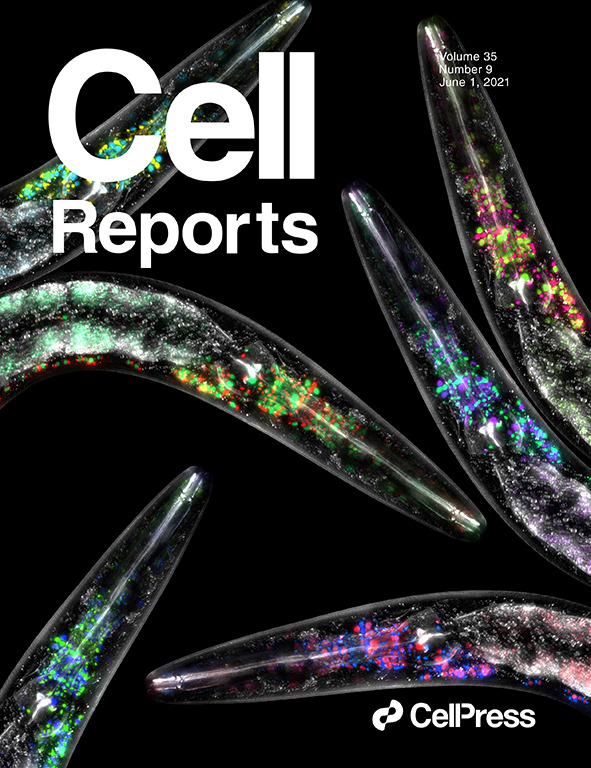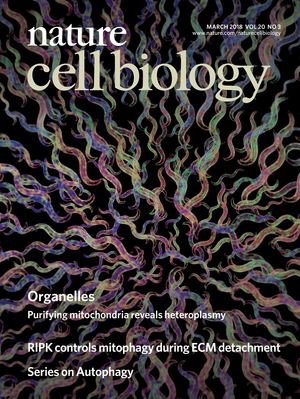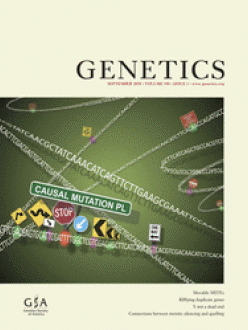Epigenetics and Mitochondrial Biology Lab
About the Research
With life expectancies increasing around the world, neurodegenerative disorders (e.g. Alzheimer's disease -AD, Parkinson's disease - PD, Motor neuron diseases - MND) represent an enormous disease burden on individuals, families, and society. Two forms of cellular stress are a hallmark of age-related neurodegenerative disease: mitochondrial dysfunction, and toxicity resulting from conformationally challenged, aggregate-prone proteins. Although direct links between these factors and human disease are sometimes elusive, it is clear that such stressors ultimately lead to a decline in individual neuron function over time.
The Zuryn lab uses cutting-edge molecular and cellular techniques in the C. elegans and human cell culture systems to understand the fundamental mechanisms by which cells respond to mitochondrial dysfunction. Mitochondria harbour their own genome (mtDNA), which is prone to accumulating mutations as we age leading to dysfunction that may contribute to the progressive nature of neurodegenerative diseases. The Zuryn lab have recently discovered that certain cell types in the body are prone to propagating mtDNA mutations more than others (Ahier et al. Nature Cell Biology 2018) and that aggregate-prone disease-associated proteins can enhance the accumulation of mtDNA mutations in neurons by inhibiting quality control pathways, such as mitophagy (Cummins et al. EMBO Journal 2019, Ahier et al Cell Reports 2021). Excitingly, the Zuryn lab are now uncovering multiple distinct mechanisms that counteract the mtDNA mutations themselves by developing novel genetic tools that allow them to probe cellular responses and protective mechanisms that reverse the effects of mtDNA damage (Dai et al. Nature Cell Biology 2023). Their aim is to discover new molecules that protect cells from the effects of mitochondrial dysfunction and that may be used as novel therapeutics to counteract mitochondrial and neurodegenerative disease.
About the Group Leader
Associate Professor Steven Zuryn is a molecular geneticist within the Queensland Brain Institute, The University of Queensland. After training as a PhD in genetics, he undertook postdoctoral reseach at the Institut Génétique Biologie Moléculaire Cellulaire (IGBMC) in Strasbourg, France. He now leads an international and diverse team of postdoctoral, PhD, Honours, and undergraduate investigators studying epigenetics and mitochondrial biology. His laboratory’s work focuses on the role and impact of mitochondrial dysfunction in neurodegenerative diseases and is particularly fascinated with mutations that accumulate within the mitochondria’s own genome during ageing. His research has been published in the high profile journals Science, Nature Cell Biology, and Nature Communications and has appeared in multiple mainstream media outlets. For his research, he has received multiple international prizes and fellowships (including an ARC Future Fellowship), been awarded grants from the NHMRC and ARC as primary chief investigator and is generously supported as a fellow of the Stafford Fox Research Foundation. Steven is passionate about communicating the critical importance of fundamental scientific research as a long-term human endeavour.
Group leader
Associate Professor Steven Zuryn
@ZurynLab
LinkedIn profile
zurynlab.com
+61 7 334 66477
s.zuryn@uq.edu.au
UQ Researcher Profile
Selected Publications

Dai CY, Ng CC, Hung GCC, Kirmes I, Hughes LA, Du Y, Brosnan CA, Ahier A, Hahn A, Haynes CM, Rackham O, Filipovska A, Zuryn S. (2023). ATFS-1 counteracts mitochondrial DNA damage by promoting repair over transcription. Nature Cell Biology. 17July 2023.
Kirmes I & Zuryn S. (2022). LONP-1 aids propagation of deleterious mtDNA. Nature Cell Biology. 24(2):127-128.
Ahier A, Dai CY, Kirmes I, Cummins N, Götz J, Hung GCC, Zuryn S (2021). PINK1 and parkin shape the organism-wide distribution of a deleterious mitochondrial genome. Cell Reports 35(9):109203.
Brosnan CA, Palmer AJ, Zuryn S (2021). Cell-type-specific profiling of loaded miRNAs from Caenorhabditis elegans reveals spatial and temporal flexibility in Argonaute loading. Nature Communications. 12:2914.
Hahn A & Zuryn S (2019). The cellular mitochondrial genome landscape in disease. Trends in Cell Biology. 29(3):227-240.
Cummins N, Tweedie A, Zuryn S, Bertran-Gonzalez J, Götz J (2019) Disease-associated tau impairs mitophagy by inhibiting Parkin translocation to mitochondria. EMBO Journal. 38(3):e99360.

Ahier A, Dai CY, Tweedie A, Bezawork-Geleta A, Kirmes I, Zuryn S. (2018). Affinity purification of cell-specific mitochondria from whole animals resolves patterns of genetic mosaicism. Nature Cell Biology. 20(3):352-360.
Bezawork-Geleta A, Wen H, Dong L, Bing Y, Vider J, Boukalova S, Krobova L, Vanova K, Zobalova R, Sobol M, Hozak P, Novais SM, Caisova V, Abaffy P, Naraine R, Pang Y, Zaw T, Zhang P, Sindelka R, Kubista M, Zuryn S, Molloy MP, Berridge MV, Pacak K, Rohlena J, Park S, Neuzil J (2018). Alternative assembly of respiratory complex II connects energy stress to metabolic checkpoints. Nature Communications. 9:2221.
Zuryn S, Ahier A, Portoso M, White ER, Morin MC, Margueron R, Jarriault S (2014). Sequential histone-modifying activities determines the robustness of transdifferentiation. Science. 345(6198):826-829.

Schlipalius DI, Valmas N, Tuck AG, Jagadeesan R, Ma L, Kaur R, Goldinger A, Anderson C, Kuang J, Zuryn S, Mau YS, Cheng Q, Collins PJ, Nayak M, Schirra HJ, Hilliard MA, Ebert PR (2012). A Core metabolic enzyme mediates resistance to phosphine gas. Science. 338(9):807-810.
Richard J*, Zuryn S*, Fischer N, Pavet V, Vaucamps N, Jarriault S (2011). Direct in vivo reprogramming involves transition through discrete, non-pluripotent steps. Development. 138(8):1483-92. (*Co-first)
Zuryn S, Le Gras S, Jamet K, Jarriault S (2010). A strategy for direct mapping and identification of mutants by whole-genome sequencing. Genetics. 186(1):427-30.
For all publications, click here.
Please email A/Prof Zuryn for enquiries about honours, PhD, and postdoctoral positions.

